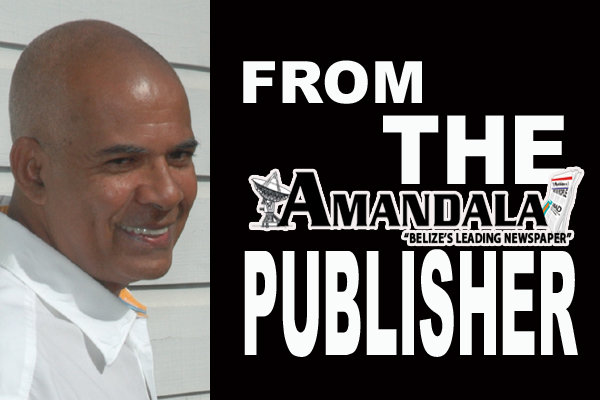When the Belize Estate and Produce Company (BEC) muscled the Maya out of their ancestral lands in Yalbac, and forced them to resettle in what is now known as San Jose Palmar, this was 1936, and roots African people in the capital, now known as Belize City, would not have had the slightest idea what was going on. When the roots African people of that capital had risen up against their European and European-sympathetic masters in July of 1919, the Maya in the villages of the Corozal and Orange Walk Districts would not have known of that uprising until some time after it was over: the uprising lasted only two days.
The situation is different today, because of radio and television communications, and because of a modernized road system which enables us to drive from Belize City to Orange Walk Town in just an hour, and to Corozal Town in a half hour more. In Belize City, the roots masses have known of the struggle of the Maya and Mestizo cane farmers against the giant transnational company – American Sugar Refining (ASR), even as that struggle has been going on over the last two years or so. The whole country of Belize, in fact, was being updated from hour to hour and from day to day.
In an ideal situation, from the standpoint of a militant nationalist, once the Prime Minister of Belize essentially announced on Thursday morning that he and the Government of Belize were taking the side of ASR in the dispute with the cane farmers, then the organized roots workers in the rest of Belize would have moved to show their solidarity with the cane farmers. But, in Belize we do not live in an ideal situation, because the masses of the Belizean people, 33 plus years after political independence, are not politically educated beyond red (UDP) and blue (PUP).
On Thursday morning, the issue of the struggle between ASR and Belize’s cane farmers began becoming a fight between the ruling UDP and elements of the Opposition PUP. The rhetoric of the national leadership of the PUP has always been in favor of the cane farmers, but the national leadership of the PUP is on record as fully endorsing the concept of foreign direct investment, which means that they endorse the overall development philosophy which invited ASR to Belize in the first place. In addition, the national leadership of the PUP has a substantially better relationship with the British billionaire investor, Lord Michael Ashcroft, than the UDP government presently does. This UDP government nationalized Lord Ashcroft’s Belize Telecommunications Limited (BTL) a few years ago, and he has been agitating for compensation ever since. In other words, there are leaders of the PUP who are probably compromised philosophically where the issue of ASR versus the cane farmers is concerned.
The PUP could have done more to support the cane farmers, but it is the UDP Government of Belize which is in charge and which one expected to protect the cane farmers from the giant ASR. This dispute is a UDP baby. As things stand, under the most extreme of financial pressure, the cane farmers have begun to divide along party political lines.
There is a fundamental contradiction in the economic development philosophy of both the UDP and the PUP. They both call for international investment capital, but that international investment capital comes out of a European and neo-European world which accumulated that capital over centuries of exploitative, oppressive slavery and colonialism in the non-European world. When you invite this international investment capital into your supposedly sovereign nation, how can you expect them not to exploit and oppress? That is who they are. Belizeans, as did billions of other people in the colonized world, fought for self-rule after World War II. Belizeans wanted to be in a constitutional position to defend ourselves from those who had enslaved and colonized us.
Thursday morning’s statements by the Belize Prime Minister were painful blows to the national psyche of Belize. The same Prime Minister whom the cane farmers were calling upon, in a Supreme Court injunction, to force the ASR factory to begin the grinding season, was saying that he and his government were taking the side of those who were involved in destroying the unity and solidarity of the cane farmers’ association.
If we are to judge by what has happened to the Toledo Maya in their dispute with the U.S. Capital Energy oil company, and what is now happening to the cane farmers in their fight with ASR, we would have to say that the evidence indicates that foreign investment capital is more powerful in Belize than the rights and interests of the Belizean people. As the novelist Arthur Koestler once wrote, “when they come for me in the morning, they will come for you in the afternoon.”
It is characteristic of an oppressed people for them to be divided. The majority of Belizeans in 1950 committed themselves to self-rule. We decided to become a nation. What kind of nationhood is this that we have in January of 2015? Is it just nationhood on paper? How easy it has been for the invaders to divide us Belizeans and defeat us, on our own territory!
On Thursday morning, the Prime Minister referred to several leaders of the cane farmers’ struggle as “radicals.” In the Honorable Prime Minister’s present world, this is a term of opprobrium. You should be careful, Mr. Prime Minister. There were a few people who founded the party you lead back in 1973 who were considered “radicals” back then. These were people who put in work which enabled you to be where you are today. There is today, Mr. Prime Minister. And there is tomorrow.
Power to the people. Power in the struggle.


